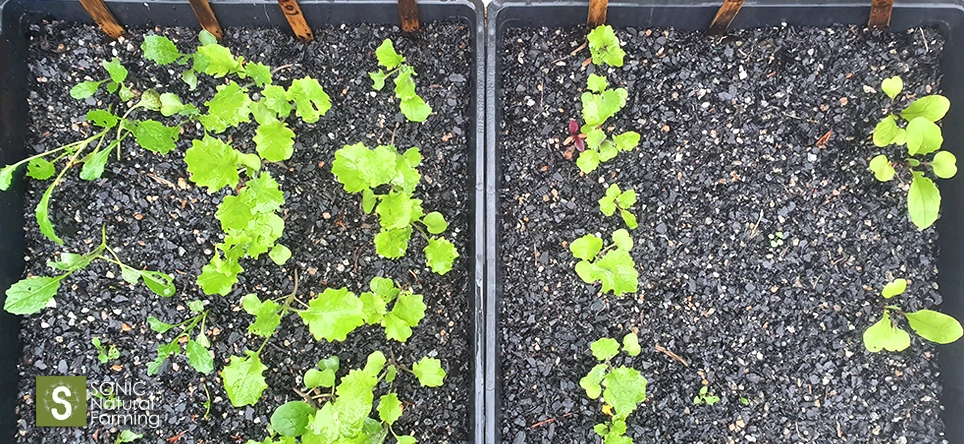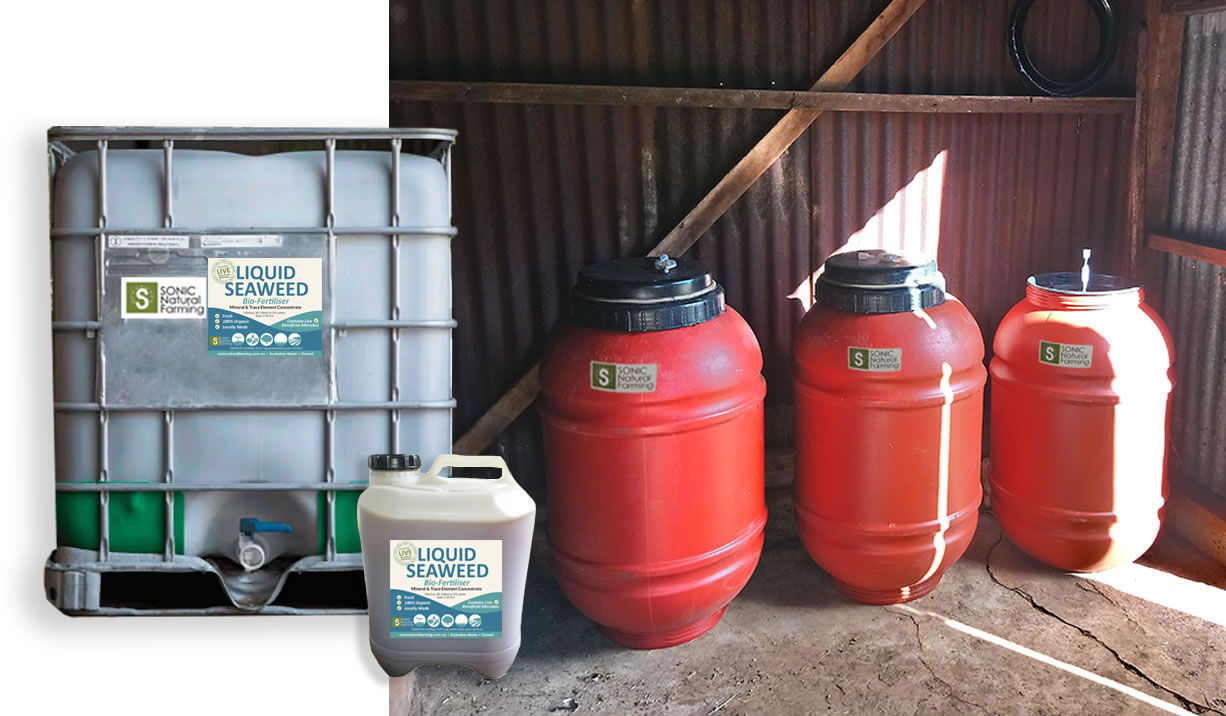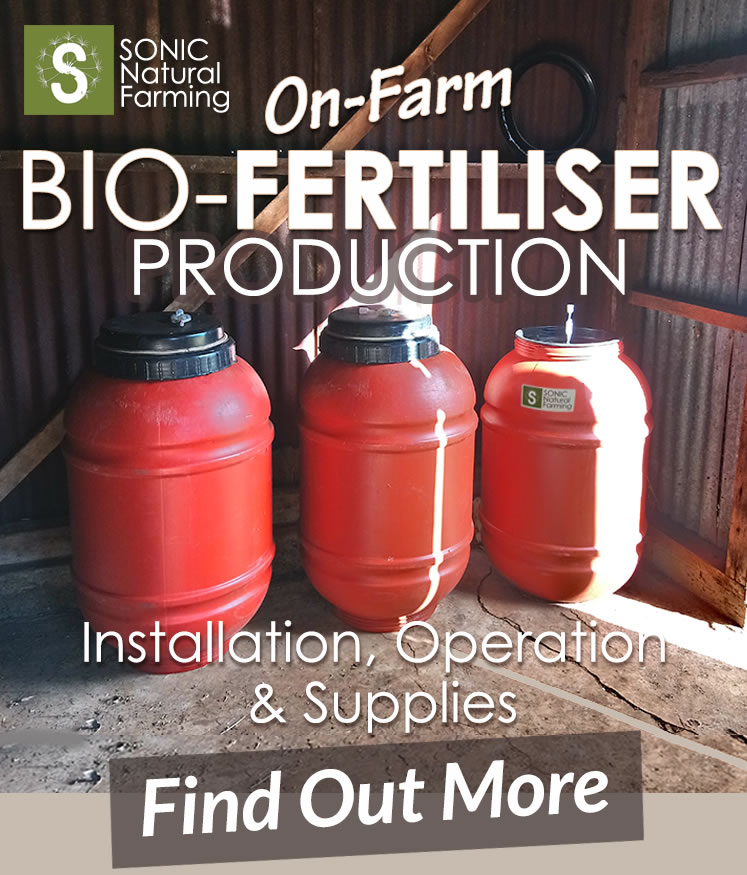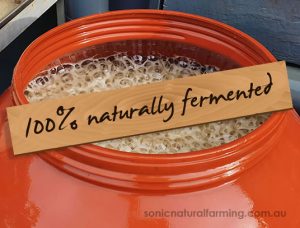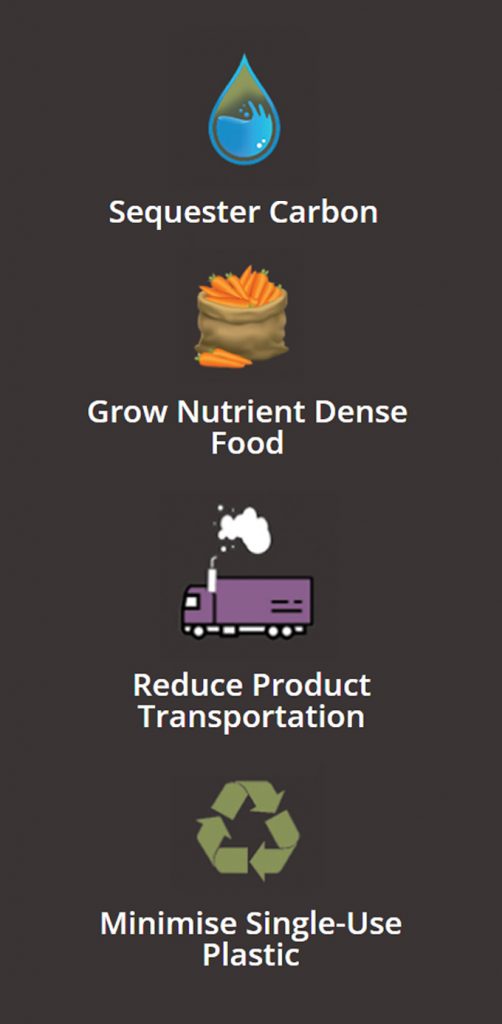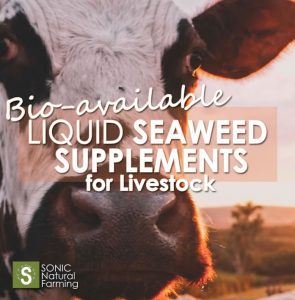When it comes to seed germination, the treatment of seeds with biological fertilisers has shown promising results in terms of faster germination rates. Biological fertilisers, also known as organic or natural fertilisers, are derived from organic sources such as seaweed, fish, and soil microorganisms.
In this article we look at the use of biological fertilisers on seeds and the number of benefits it provides that contribute to faster germination.
Why Accelerate Germination?
Faster seed germination has been observed in a number of studies using Liquid Biological Fertilisers, which is advantageous for farmers for several reasons;
Firstly, it allows plants to establish themselves more rapidly, giving them a head start over potential competition from weeds or adverse environmental conditions.
Additionally, faster seed germination can lead to more uniform plant growth across a field or garden bed.
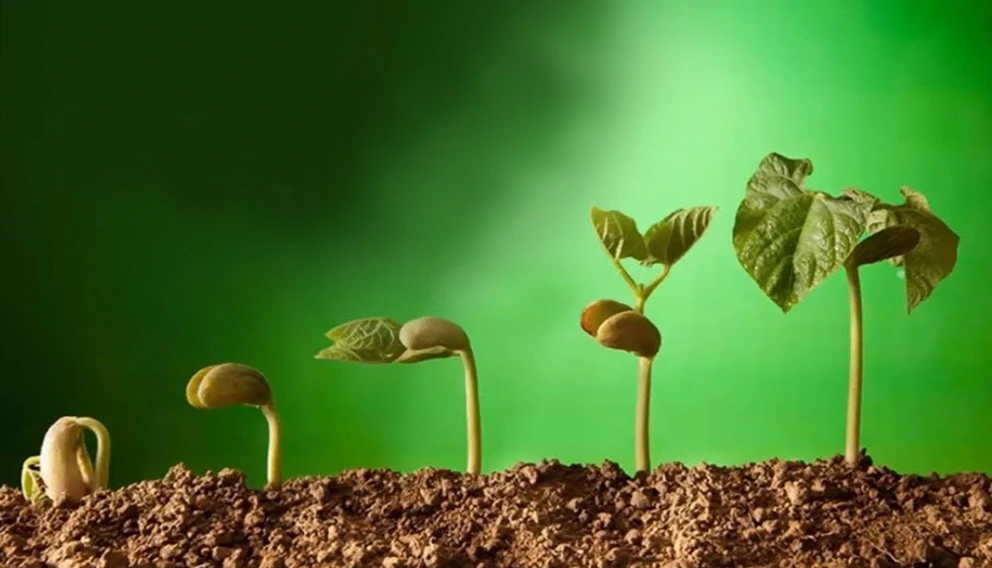
Accessing Natural Growth Stimulators
Seaweed contains more than 70 minerals, microelements, vitamins and enzymes. Natural ocean Seaweed (kelp) is rich in essential nutrients such as nitrogen, phosphorus, potassium, and trace elements like iron, zinc, and magnesium. These nutrients benefit healthy plant development, promoting robust root growth, improved flowering and fruiting, and overall plant vigor.
There are also benefits to using Biological Fertilisers produced from seaweed (kelp), as a seed inoculant prior to planting seeds. Using Liquid Seaweed Biological Fertiliser is excellent for rapid seed germination, due to its own natural growth hormones such as auxins, cytokinins, and gibberellins. These hormones play a crucial role in stimulating cell division, elongation, and differentiation in plants, leading to faster and healthier growth.
Read article ‘Benefits of Seaweed in Regenerative Agriculture’
SEAWEED FERTILISER FACT
Many seaweed fertiliser products today are manufactured using an extraction process. The extraction process generally uses an alkali extraction agent, such as potassium hydroxide. This process inevitably denatures a lot of the original compounds found in seaweed, which are known to have many beneficial uses for plants.
For example, seaweed has a compound called betaine osmoregulators. When applied to plants, in its original form, these osmoregulators make plants a lot more resilient to drought stress. It allows the plant cells to regulate water much better, and require less water, which enhances the plants’ tolerance to stress. Betaine osmoregulators are lost using an alkali extraction method.
Cold processing, or natural fermentation, retains all the original compounds of seaweed, in a bio-available state. Read about Biological Fermentation Here.
Inoculating seeds with ‘living’ biology such as beneficial bacteria and fungi, can also help to improve germination rates. Furthermore, biological inoculants gives the young plant the optimal chance of surviving and thriving in its new environment.
Nature’s Seed Inoculants
Seeds that have been treated with natural Biological Fertiliser and biostimulants not only have a fast seed germination rate, but also help to improve strike rates. This means a higher percentage of seeds germinate. While this is also determined by the quality of the seeds, in many cases this has proven to be the case.
The Silent Communication of Microbes
When seeds are inoculated with biological stimulants, as they germinate, the biology sends out signals, indicating that there is a microbial rich environment. The plant seedling responds to the biologically ‘alive’ environment, and recognises that it is naturally supported to grow. And, as the plant grows, it performs better photosynthesis, and has the microbial support to help establish, and participate in, a broad biological communication network.
Using chemical fungicides on seeds does immense damage, not only to the soil, and the plant, but to its future seeds. Fungicides inhibit young plants from accessing the biological communication network, and from sourcing the essential nutrients through them.

Probiotics for Seeds
The best way to kick-start a biological soil/plant relationship is to inoculate seeds in a natural Biological Fertiliser that has been fermented in an anaerobic environment, using a diversity of active beneficial microbes.
Using (naturally) inoculated seeds, not only produces fast seed germination, but once in the ground the microbialy active fertiliser can trigger dormant microbes in the soil to ‘switch on’ through quorum sensing. The seed then knows it is ‘biologically supported’ with a ‘microbial community’ available, and proceeds to grow with strength and immunity.
Liquid Seaweed BioFertiliser – Put To The Test
In a trial, we conducted an experiment using freshly fermented SONIC Liquid Seaweed Biological Fertiliser to raise a tray of seeds, comparing it to a control study tray that used only water. Our main focus was to observe the seed germination rates, growth rates, and visual seedling health.
One of the key factors we examined in this experiment was the speed of seed germination.
Trial Details
From hand harvested, open-pollinated seeds, we chose 9 of each; purple lettuce, curly kale and nero kale, with a total of 27 seeds for each study.
The day before planting, we soaked half of the trial seeds in diluted Liquid Seaweed Biological Fertiliser, then all the seeds were planted at the same time, in the same type of growing medium.
The first day the seeds emerged it showed us that the seed strike rate was fastest, with a higher strike quantity, when they were pre-soaked in Seaweed Biological Fertiliser.
DAY 1 – Seaweed Biological Fertiliser:
26 out of 27 seeds presoaked in Biological Fertiliser emerged.
DAY 1 – Control Study:
2 out of 27 seeds in the control study emerged, and another 10 seeds emerged the following day. A total of 12 out of 27 seeds in the control study eventually emerged.
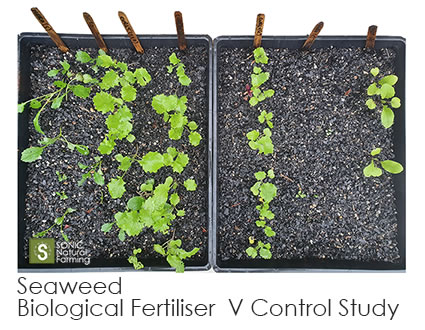
DAY 8 – As the above image indicates, seeds grown using Seaweed Biological Fertiliser are further advanced, with a richer green colour, compared to the seedlings in the control study.
Trial Overview
By using the Liquid Seaweed Biological Fertiliser in our trial study, we aimed to determine if it could potentially enhance or accelerate the seed germination process compared to using water alone.
Throughout the observation period, we closely monitored both trays for any noticeable differences in terms of how quickly the seeds sprouted and developed into seedlings. This allowed us to assess whether or not the use of Liquid Seaweed Biological Fertiliser had any impact on the speed of seed germination.
The results obtained from this trial study showed that Liquid Seaweed Biological Fertiliser can be considered an effective tool for promoting faster seed germination rates. Such information can be vital for those seeking efficient methods to improve plant growth and maximise productivity in agricultural or horticultural settings.
How To Inoculate Seeds
- Seeds can be pre-soaked in diluted Liquid Seaweed for 2-5 hours or overnight pre-planting.
- Soil can be drenched with diluted Liquid Seaweed pre-planting.
- Seeds can be sprayed with undiluted Liquid Seaweed, pre-planting.
- Seeds can be watered with diluted Liquid Seaweed post-planting.
- Seeds can be inoculated when passing through direct seeder machines such as Australia’s Ausplow Machines.
NOTE: Some seeds such as legumes should not be pre-soaked.
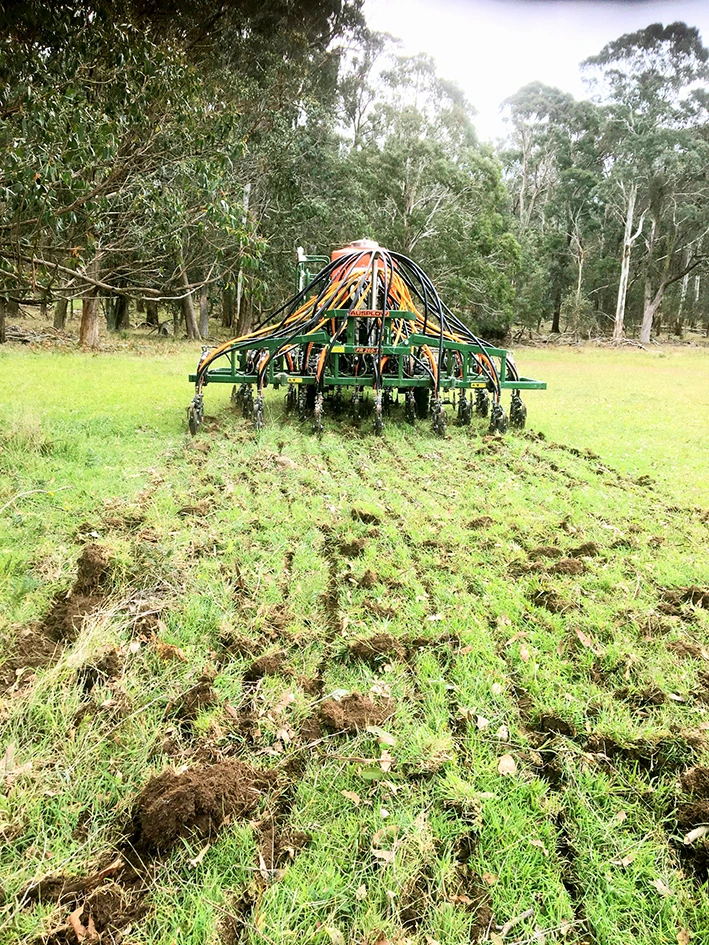
Key Benefits of Seed Inoculation
- When seeds are pre-soaked, and watered with SONIC Liquid Seaweed Biological Fertiliser, they have a much higher germination quantity and speed.
- Seaweed contains a high concentration of plant hormones, which stimulate seed germination and growth.
- Liquid Seaweed Biological Fertiliser, as a seed soak, means the roots of plants come into contact with beneficial organisms straight away, which can help to improve the plant’s health and vigour.
- Early growth rates are faster. Once out of the ground, seeds treated with Liquid Seaweed Biological Fertiliser grow stronger and bigger.
- Seaweed contains a wide range of organic minerals and trace elements that are essential for plant growth.
- The natural alginate in Seaweed can be a natural ‘repellant’ to excessive moisture/mould/algae.
Overall, treating seeds with biological fertilisers and biostimulants offers a natural approach to promoting faster germination rates. By providing essential nutrients, improving soil conditions, and enhancing microbial activity in the rhizosphere around the seeds’ roots, these fertilisers create an optimal environment for seed germination success.
Read Article – How to Prevent Mould and Algae on Seedlings
RELATED EXTERNAL LINKS
PODCAST: John Kempf interviews plant pathologist Dr. James White of Rutgers University, whose work provides a new perspective on plant pathology, susceptibility to soil-borne pathogens, and plant absorption of nutrients.

